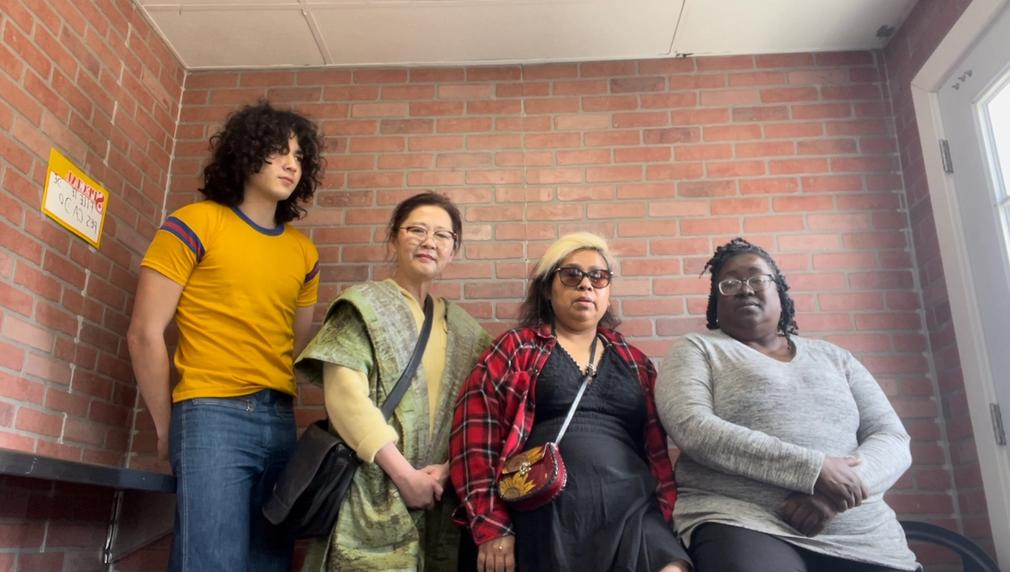Moving Forward
Asian Americans for Housing and Environmental Justice seeks to expand it's existing public transportations systems change initiative. With funding, we will create the Koreatown Regional Public Transportation Safety Collaborative, which will establish safe travel routes for linguistically and economically marginalized residents in Koreatown. In addition, we will expand our senior leadership training program to provide training and support for community led safety solutions.

What is the primary issue area that your application will impact?
Public Transit
In which areas of Los Angeles will you be directly working?
Central LA
In what stage of innovation is this project, program, or initiative?
Expand existing project, program, or initiative
What is your understanding of the issue that you are seeking to address?
Koreatown is ground zero for urban climate change. It is the least green area in all of Los Angeles. Koreatown has the least parks (one tiny one) and the least amount of canopy tree shade. It is the most densely populated neighborhood in L.A. Almost 90% of Koreatown is covered with roads, parking lots, and roofs; which collect heat during the day and radiate heat into the evening and night during hotter months. According to a UC Berkeley study, "Pedestrian crashes made up 59.8 percent of all fatal and serious crashes, which was 41.5 percent higher than California and 34.5 percent higher than Los Angeles County." Korean and Chinese Americans have the highest mean cancer rate from air pollution. High traffic congestion from single car use and gas fueled busses are major contributors to pollution in Koreatown and environmental degradation.
Describe the project, program, or initiative this grant will support to address the issue.
We seek to address environmental injustice in Koreatown by increasing: 1) safety on public transportation; 2) collaboratively creating safe routes for walking, bike riding, and travel to and from public transportation stops; 3) increasing public transportation use for visitors to Koreatown by creating accessibility maps and routes; and 4) increasing community input and surveying that is inclusive of Limited English Proficient Korean and Asian American Pacific Islander residents of Koreatown. All of these methods help reduce carbon emissions in Koreatown; increase public transportation use; garner feedback to improve public transportation; increase safe walkability; and increase livability. We have yet to see a LA2050 grant that specifically addresses the needs of Asian American Pacific Islanders and Native/Indigenous residents in Koreatown.
Describe how Los Angeles County will be different if your work is successful.
Asian American Pacific Islanders are the fastest growing demographic in Los Angeles; yet our issues are almost never highlighted. It's time for LA County to see us and work with us. If our work is successful, LA County will visibilize AAPI communities. Our vision of success is making Koreatown safer for all by reducing congestion and vehicle traffic. i.e. carbon emissions. We will measure safer streets and increased walkability through surveying and data on pedestrian accidents. We will identify areas with higher rates of pedestrian accidents and address issues such as signage and barriers to visibility for drivers. We will identify areas where speeding is an issue and increase traffic slowing measures such as cross walks, stop signs, speed bumps, and stop lights. Our intended impact is listen to the residents of Koreatown about their pedestrian and public transportation concerns and implement environmental safety measures. Impact will be long lasting; this is work that we already do.
What evidence do you have that this project, program, or initiative is or will be successful, and how will you define and measure success?
We have just completed a succesful pilot program for LA DOT in Koreatown as travel ambassadors. We just got a five month grant to increase input from older and senior residents in Koreatown, Thaitown, Filippino town, and Chinatown regarding public transportation. It's a systems change grant to address environmental and linguistic barriers to walkability and public transportation use. The Southern California Association of Governments (SCAG), in partnership with City of Los Angeles Department of Transportation, community, civic, and school partners, is launching the Koreatown-Wilshire Center Neighborhood Enhancement Network (NEN) project has reached out to us recently about collaborating and networking on their initiative. We are measuring the impact of our work through surveying, narrative reports, and granular data. We are also measuring our success through growth and with new partnerships. We are successfully getting AAPI voices heard in our own communities
Approximately how many people will be impacted by this project, program, or initiative?
Direct Impact: 50
Indirect Impact: